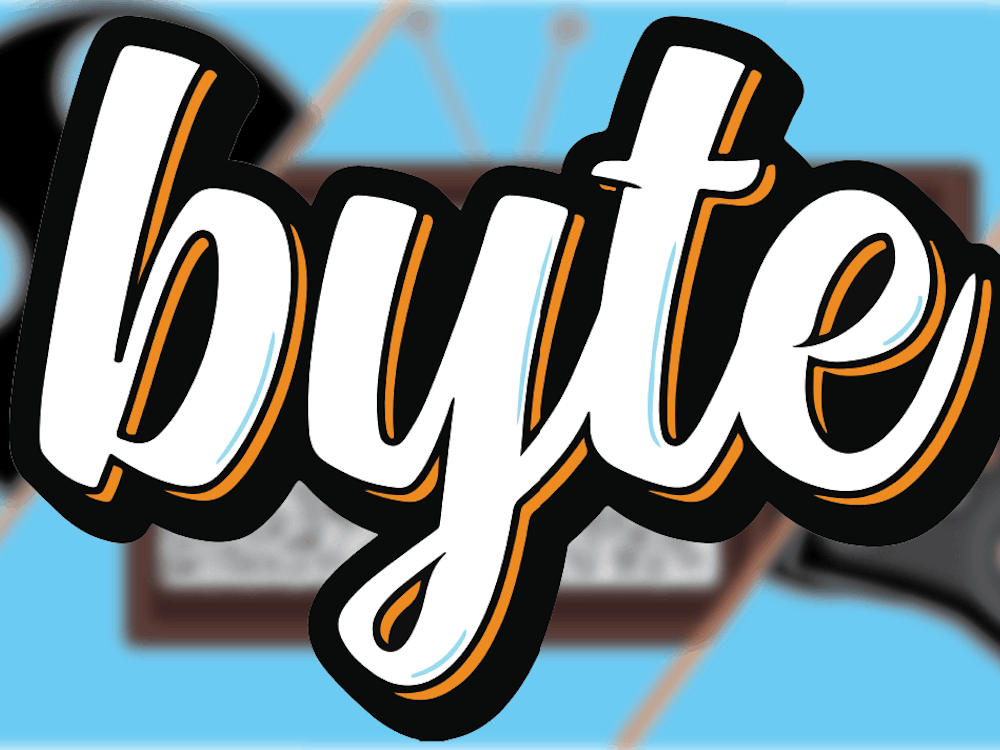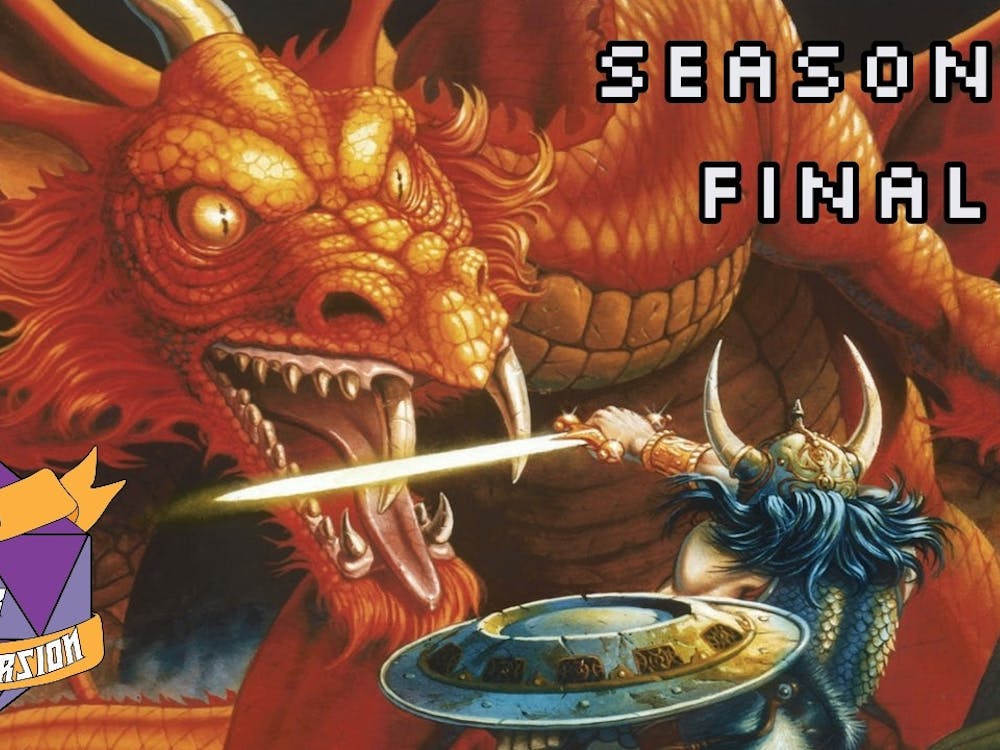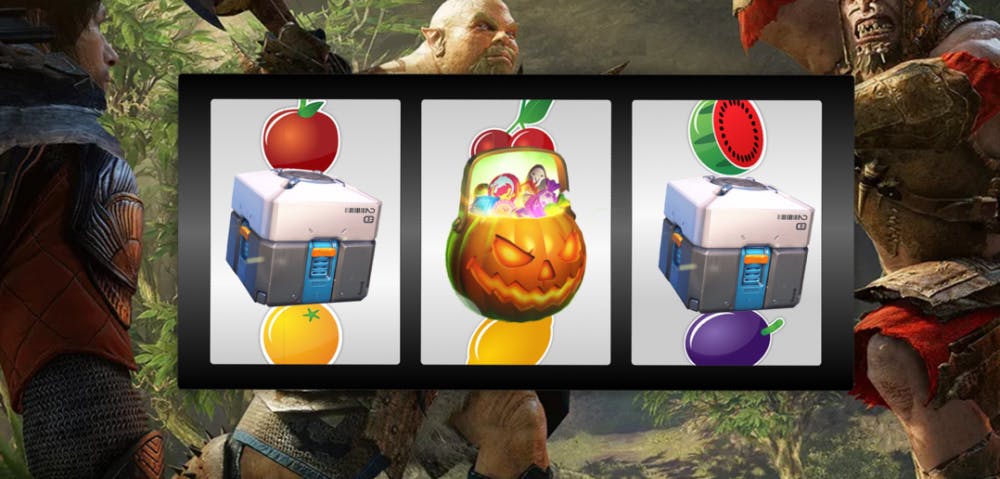Gaming is a business that is designed to make money. It’s hard to remember that when you’re out having fun skewering Orcs in Middle-Earth, force choking people as Darth Vader or doing high-octane racing but the games industry needs to make money. This is great, capitalism is great, and developers should be rewarded for their efforts. Games have changed though. It’s no longer about putting out content worth giving hard earned dosh for in high quality DLC quests, maps or characters. It’s about siphoning the customer for as much as possible while exerting as little effort as possible. Thus, from the dredges of the mobile market comes the triple A publisher’s new get-rich-quick scheme: the lootbox.

Image from Overwatch
For those who don’t know, the lootbox is a digital box with randomly selected items that can be used in the game. This can be as simple as a new voice line to a whole new character in some games and the value of what’s in the box can fluctuate wildly. It’s sort of like getting a box of chocolates. Except, in the case of the lootbox, this box of chocolates could contain the most decadent Belgian chocolate you’ve ever had in your entire life or it could contain a fun-size Snickers. And the box cost you five dollars. And the chance of getting the Belgian chocolate is roughly 3% but you aren’t told that. Now, assuming there’s a Belgian chocolate in the box, that’s a huge steal. The value of the box was well worth it. If you were to get the fun-size Snickers though, you would feel cheated. I certainly would, at least give me a king size Snickers or a packet of Rolos, not this. That’s the lootbox and if that sounds like gambling and something questionable to you, then you are officially more in touch with things than the Entertainment Software Rating Board (ESRB).
It’s hard to really tell where the lootbox started popping up in triple A games. Earliest reports of it I’ve found have been in Mass Effect 3 multiplayer, where the store had packs that gave you randomly selected characters and/or weapons of random quality for upwards of three dollars. The business model has shown up in other games since then but stuck mainly to mobile titles or free-to-play games where it belongs. Of course, when something starts to turn a huge profit, the greedy game publishers can’t help but to put these things in their 40 to 60 dollar games. The biggest, most popular case of this was Blizzard’s Overwatch, who’s lootboxes have turned into both a meme for how bad people’s luck was and a sign for other publishers that people will eat it up. They also realized these people will then vehemently defend it in online forums when people justifiably question why you can’t just straight up purchase what you want directly, instead having to HIT THE LEVER and hope that you get Witch Mercy during the one month it’s available. But hey, at least you got the Happy Halloween D.Va voice line and green recolor Hanzo! Again. Guess you either gotta play a bunch of matches or fork over more cash to try again!

Image taken from Overwatch, my free lootbox draw for Halloween. Appropriately terrible
Overwatch isn’t the worst offender though. Technically, you can obtain everything without having to pay a dime. You can use the coins you can ONLY obtain from playing and from lootboxes to buy a specific skin. Nothing that costs real money is game-changing, just cosmetic. Also, Overwatch is only $40 (as if that makes a difference). These are the arguments the community makes to defend their gambling habits like a chain-smoker on the slots at a casino saying they can quit whenever they want and they’re gonna win big eventually.
The real problem examples come from the real heavy hitters in the triple A industry. Forza 7 had features that were previously part of the series gutted and put into “prize crates.” Features like racing at night and challenge modes are put behind a paywall that Turn 10 stated would become part of the game. Destiny 2 has powerful weapons hidden inside of lootboxes you can either earn in game or, more easily, fork over cash for. WWE 2K18 will have loot crates that are slated to only be purchasable in-game, and I’m sure the pristine peaches at 2K Games would never go back on their word because of how trustworthy they are. All of these games cost 60 dollars (or more in the case of Destiny 2 which will have expansion packs). Whether it was unlocked through cheat codes or in-game feats, the content in these crates used to be a part of the game. Gone are those days. We now live in the era of the lootbox.
But wait, there’s more! Middle-Earth: Shadow of War, the next game from WB Games is working the achieve a brand new low in the lootbox craze. The new feature allows you to open loot crates to get Orcs that are used in both multiplayer AND single player. Not so bad, it doesn’t seem like it’s required at first, just a quick way to gain power of other people or the AI if you like your games to be that easy. Do you want the true ending though? The ultimate final cutscene for all your efforts? Well guess what, you get to either grind or go to the slots to try and get legendary Orcs and gear. Sure, you can get them in game if you are lucky but that’s a long grind to get enough to get the best ending. Don’t even get me started on Star Wars Battlefront 2’s Star Cards, which are somehow worse than all of my previous examples by being truly pay-to-win. Since the game is still about a month away, this system could could be changed before it launches. Let’s hope that’s the case because the last thing 60 dollar games need to have is another micro-paywall behind the initial paywall so you don’t fall behind in a multiplayer game.

Image from YouTube
With how awful and manipulative these glorified digital slots can be, the debate now is over whether lootboxes are actually gambling and should be regulated. The answer? They kind of already are. At least in Asian countries, due to stricter gambling laws, games with similar lootbox systems (called “gacha” games after the popular gachapon toys) are mandated to provide statistical odds on what the player can get. If you’ve played Fire Emblem Heroes, you’ve probably noticed this with the best units given a 3% drop chance. Fair enough, at least you have some idea what the odds are. It doesn’t do away with the gambling but it’s regulated as such. This is not the case in the west. It might even be worse in some respects like during the CS:GO gambling controversy where actual children were targeted by real gambling websites. The battle already seems lost here especially since the ESRB has officially declared that lootboxes are not gambling.

Image from Fire Emblem Heroes
These virtual items do not have real world value so you cannot gamble for them (which means the $100 CS:GO knives are bought with fake money then, I assume). Of course, the ESRB is funded by publishers and having to disclose blatantly anti-consumer business practices would just be a shame for the poor multi-billion dollar corporations to have to do. They might lose sales! How will they ever go on? Right, because I’m supposed to feel sorry for the publishers who’ve been carving up games for the past 10 years.
The only part that really concerns me is giving control over to the government or some third party to start regulating games. Regulating the content of games should not happen and I’m afraid of giving them an inch. After all the battles the gaming community have fought for Grand Theft Auto or Mortal Kombat, we shouldn’t be so quick to give up control of our medium. One part of me sees the obviously greed-fueled lootboxes and wants something to be done about it but the other part of me is afraid to let anyone touch the gaming industry we know and, well, maybe not love but sorta kinda like.
Now, you may be asking, “Why bother complaining about it? There’s nothing we can do to stop publishers from doing it. All you’re doing is screeching into an echo chamber.” You know what? Maybe you’re right. I’ve seen 10-20 different threads online about this topic. All of them say the same thing and the discussion goes nowhere. Is there anything we can do to prevent games from getting progressively more and more anti-consumer? Well, not buying into games that have these scummy systems or at the very least not buying the lootboxes is a start. Getting awareness out about games that attempt this is another way, something review aggregate OpenCritic is attempting.
Finally, I would say giving praise to good games from big publishers that don’t resort to a lootbox scheme is a way to discourage publishers from continuing this predatory trend. Publishers may not care, they may keep going like with season passes and microtransactions but maybe, just maybe, the consumer will finally be able to stop them from playing with our hearts and wallets. Then Nintendo will acknowledge F-Zero, world peace will be declared and Capcom will finally announce a new Mega Man game! Call me cynical, but I’m not holding my breath. Horse armor was just 11 years ago, and things have only gotten worse. Let’s see how low we can go, shall we?
Sources: Kotaku, PC Gamer, IGN, OpenCritic
Images: Tanner Kinney, Twitter, YouTube
For more entertainment related content, visit us at Byte Bsu!
















